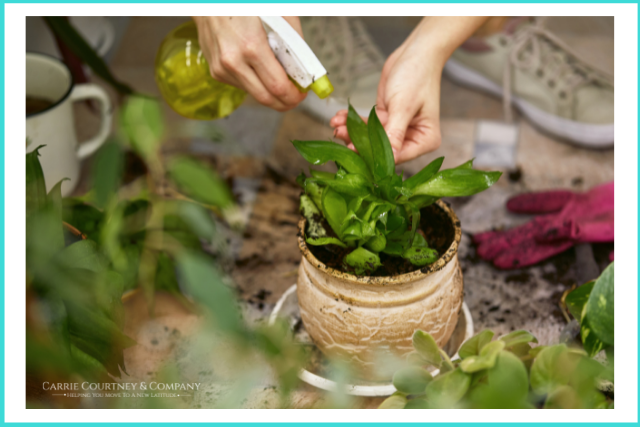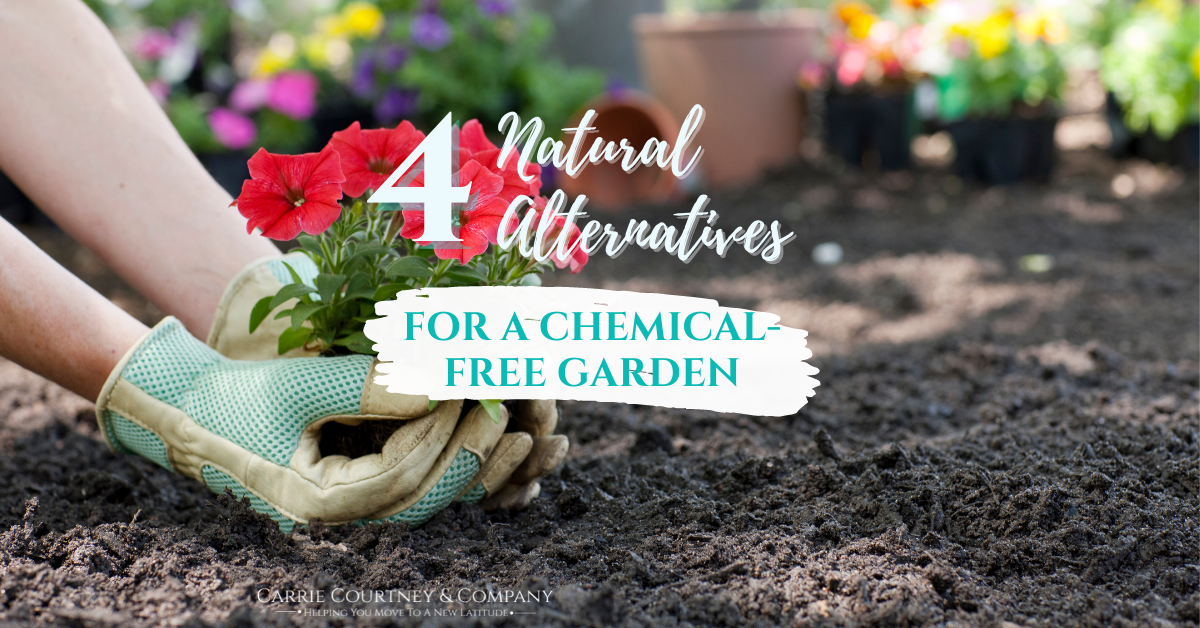A healthy garden is the best defense against pests and weeds. Sometimes, though, it is necessary to protect plants from damaging influences. Since most store-bought remedies contain toxic chemicals, consider some natural alternatives to keep pests at bay.
Here are some homemade, chemical-free recipes that are safe for your garden and the environment. These formulas will eventually break down, so they are okay to use on vegetable and herb gardens, too.
Oil Spray Pesticide
This solution will keep away aphids, thrips, spider mites, and whiteflies. Mix together 1 cup of vegetable or white mineral oil and ¼ cup of liquid dish soap to create the pesticide concentrate. Then dilute 1 tablespoon of the concentrate with 4 cups of water prior to using. Once diluted, you can use a spray bottle for easy application. Apply to plants liberally, especially on the backside of leaves, as this is where many pests tend to hide or lay eggs. Store the concentrate for three months in a sealed container or jar.

Peppermint Oil Pesticide
This minty solution will keep away ants, aphids, beetles, caterpillars, flies, lice, moths, spiders, mice, and rabbits. Fill the empty spray bottle with warm water, leaving a 2-inch space between the water line and the rim. Pour 1 tablespoon of pure peppermint oil into the warm water. Replace the spray nozzle tightly, and shake vigorously (this ensures the oil is distributed well). Cover plants with a light mist. Store in a cool, dry location.
Garlic Pepper Spray Pesticide
Use this spray to keep away rodents, rabbits, skunks, deer, raccoons, cats, dogs, bears, and flying insects that feed on leaves, flowers, and fruit. Combine ½ cup of red chili peppers, 10-12 garlic cloves, and 2 cups of water in a blender. Process briefly, then strain into a bowl and mix in 1 cup of cooking oil. Let the mixture stand for two days before use. To apply, spray it on vegetables, fruits, or herbs every few days, and be sure to wash your hands after using it or handling your plants. For best results, use the solution within a week.
Vinegar Weed Killer
Combine 1 gallon of vinegar (with 5 percent acetic acid) and 1 ounce of liquid dish soap, and pour the mixture into a spray bottle. Apply to weeds on a sunny day with no wind so the sun helps the vinegar dry out the weeds and the spray won’t inadvertently blow onto other plants. The latter is important because vinegar is a nonselective plant killer, meaning it might kill everything it touches. So be cautious where you use it, and store in a cool, dry location.

Helpful Reminders
Being mindful of what solution you’re using and how you’re using it can really help its effectiveness. When the recipe calls for liquid dish detergent, use the basic stuff—nothing fancy with added bleach, nothing concentrated, and no special antibacterial formulas. A gentler liquid soap, such as liquid castile or a perfume-free liquid hand soap, can also be substituted.
In addition, always test the solution out on a small portion of the plant first to make sure there are no adverse effects, and apply the treatment to the top of the leaves as well as underneath. But don’t overdo it; excess solution can cause damage.
Make sure to mind the weather, too. Never apply pesticides to any plant on a hot or bright, sunny day, as this will quickly lead to burning of the plant and its ultimate demise. And if it looks like rain, delay until the weather is clear since any rain will wash away the new application. If it has recently rained, wait until the greenery is dry before applying to prevent the mix from being diluted with water.
Make the most money from your home sale. Get your guide here
For homes with a beautiful garden space, be sure to search for your dream home at ChangingLatitudesFL.com.


